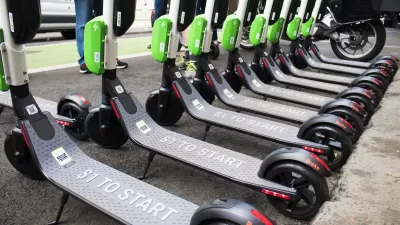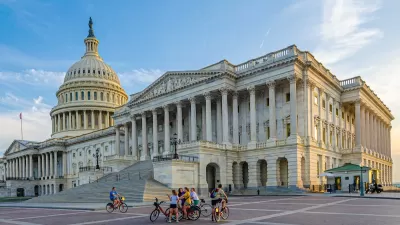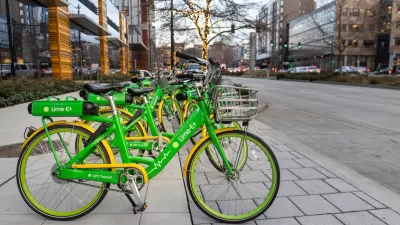One micromobility CEO says operators should align themselves with cities' mobility, climate, and equity goals to maintain their relevance in the urban spaces of the future.

In an op-ed in Smart Cities Dive, Candice Xie, co-founder and CEO of mobility operator Veo, describes what she believes the micromobility industry should do to ensure its effective participation in the future of transportation.
According to Xie, "With the micromobility industry’s track record of bankruptcies, buyouts, and layoffs, cities need to know whether they can count on the industry to help achieve their ambitious transportation goals." Rather than the combative approach many shared mobility operators took in the industry's early days, Xie argues that micromobility companies should position themselves as effective partners to cities having to "make tough decisions about how to allocate limited street space with limited resources."
Xie's five recommendations for micromobility operators:
- Become financially resilient
- Make micromobility work for everyone
- Align with cities’ climate goals
- Foster partnerships that last
- Advocate for safer streets
"Micromobility has great potential to help transform our cities for the better — and decision-makers will recognize that if our industry takes the steps to set itself up for long-term success," asserts Xie. Operators must prove they can offer a financially viable, safe, equitable, and efficient transportation option that works with, not against, existing and future transit systems and infrastructure.
FULL STORY: In it for the long haul: 5 steps to secure micromobility's future

Alabama: Trump Terminates Settlements for Black Communities Harmed By Raw Sewage
Trump deemed the landmark civil rights agreement “illegal DEI and environmental justice policy.”

Study: Maui’s Plan to Convert Vacation Rentals to Long-Term Housing Could Cause Nearly $1 Billion Economic Loss
The plan would reduce visitor accommodation by 25% resulting in 1,900 jobs lost.

Planetizen Federal Action Tracker
A weekly monitor of how Trump’s orders and actions are impacting planners and planning in America.

Wind Energy on the Rise Despite Federal Policy Reversal
The Trump administration is revoking federal support for renewable energy, but demand for new projects continues unabated.

Passengers Flock to Caltrain After Electrification
The new electric trains are running faster and more reliably, leading to strong ridership growth on the Bay Area rail system.

Texas Churches Rally Behind ‘Yes in God’s Back Yard’ Legislation
Religious leaders want the state to reduce zoning regulations to streamline leasing church-owned land to housing developers.
Urban Design for Planners 1: Software Tools
This six-course series explores essential urban design concepts using open source software and equips planners with the tools they need to participate fully in the urban design process.
Planning for Universal Design
Learn the tools for implementing Universal Design in planning regulations.
Caltrans
Smith Gee Studio
Institute for Housing and Urban Development Studies (IHS)
City of Grandview
Harvard GSD Executive Education
Toledo-Lucas County Plan Commissions
Salt Lake City
NYU Wagner Graduate School of Public Service





























